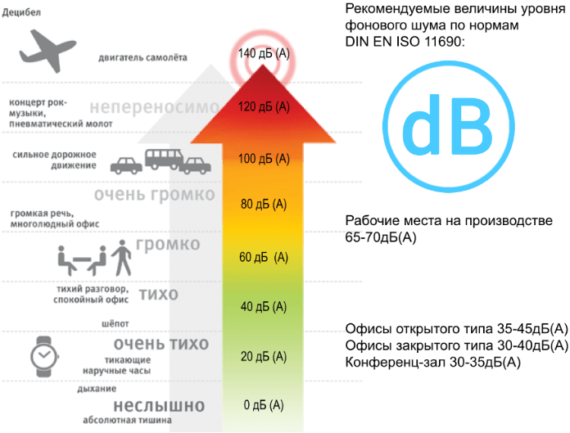Самые необходимые строковые и числовые методы в javascript
Содержание:
Replacing String Content
The method replaces a specified value with another
value in a string:
Example
str = «Please visit Microsoft!»;
var n = str.replace(«Microsoft», «W3Schools»);
The method does not change the string it is called on. It returns a new string.
By default, the method replaces only the first match:
Example
str = «Please visit Microsoft and Microsoft!»;
var n = str.replace(«Microsoft», «W3Schools»);
By default, the method is case sensitive. Writing MICROSOFT (with
upper-case) will not work:
Example
str = «Please visit Microsoft!»;
var n = str.replace(«MICROSOFT», «W3Schools»);
To replace case insensitive, use a regular expression with an flag (insensitive):
Example
str = «Please visit Microsoft!»;
var n = str.replace(/MICROSOFT/i, «W3Schools»);
Note that regular expressions are written without quotes.
To replace all matches, use a regular expression with a flag (global match):
Example
str = «Please visit Microsoft and Microsoft!»;
var n = str.replace(/Microsoft/g, «W3Schools»);
You will learn a lot more about regular expressions in the chapter JavaScript Regular
Expressions.
Статические переменные Java
- Статическая переменная может использоваться для обозначения общего свойства всех объектов (которое не является уникальным для каждого объекта), например название компании, колледжа и т. д.
- Статическая переменная задействует память только один раз во время загрузки класса.
Статические переменные в Java — преимущества
Java static переменная не загружает память.
Пример, в котором не используется статическая переменная
class Student{
int rollno;
String name;
String college="ITS";
}
Предположим, что в колледже 500 студентов. Класс Student будут задействовать память каждый раз при создании объекта. У всех студентов есть уникальное rollno и name. А college — это общее свойство для всех объектов. Если сделать его статическим, то поле будет задействовать память только один раз.
Статическое свойство Java является общим для всех объектов.
Пример статической переменной
//Программа со статической переменной
class Student8{
int rollno;
String name;
static String college ="ITS";
Student8(int r,String n){
rollno = r;
name = n;
}
void display (){System.out.println(rollno+" "+name+" "+college);}
public static void main(String args[]){
Student8 s1 = new Student8(111,"Karan");
Student8 s2 = new Student8(222,"Aryan");
s1.display();
s2.display();
}
}
Проверить сейчас
Вывод:111 Karan ITS 222 Aryan ITS
Программа подсчета без статической переменной
В этом примере мы создаем Java static переменную count, которая увеличивается в конструкторе. Поскольку переменная экземпляра задействует память только во время создания объекта, то каждый объект ее копию. Поэтому при увеличении переменной он не будет влиять на другие объекты. Каждый объект получит значение 1 в переменной count.
class Counter{
int count=0;//использует память при создании экземпляра
Counter(){
count++;
System.out.println(count);
}
public static void main(String args[]){
Counter c1=new Counter();
Counter c2=new Counter();
Counter c3=new Counter();
}
}
Проверить сейчас
Вывод: 1 1 1
Программа подсчета со статической переменной
Java static переменная задействует память только один раз. Если какой-либо объект изменяет значение статической переменной, она сохраняет свое значение.
class Counter2{
static int count=0;//использует память только один раз и сохраняет значение переменной
Counter2(){
count++;
System.out.println(count);
}
public static void main(String args[]){
Counter2 c1=new Counter2();
Counter2 c2=new Counter2();
Counter2 c3=new Counter2();
}
}
Проверить сейчас
Вывод: 1 2 3
JavaScript
JS Array
concat()
constructor
copyWithin()
entries()
every()
fill()
filter()
find()
findIndex()
forEach()
from()
includes()
indexOf()
isArray()
join()
keys()
length
lastIndexOf()
map()
pop()
prototype
push()
reduce()
reduceRight()
reverse()
shift()
slice()
some()
sort()
splice()
toString()
unshift()
valueOf()
JS Boolean
constructor
prototype
toString()
valueOf()
JS Classes
constructor()
extends
static
super
JS Date
constructor
getDate()
getDay()
getFullYear()
getHours()
getMilliseconds()
getMinutes()
getMonth()
getSeconds()
getTime()
getTimezoneOffset()
getUTCDate()
getUTCDay()
getUTCFullYear()
getUTCHours()
getUTCMilliseconds()
getUTCMinutes()
getUTCMonth()
getUTCSeconds()
now()
parse()
prototype
setDate()
setFullYear()
setHours()
setMilliseconds()
setMinutes()
setMonth()
setSeconds()
setTime()
setUTCDate()
setUTCFullYear()
setUTCHours()
setUTCMilliseconds()
setUTCMinutes()
setUTCMonth()
setUTCSeconds()
toDateString()
toISOString()
toJSON()
toLocaleDateString()
toLocaleTimeString()
toLocaleString()
toString()
toTimeString()
toUTCString()
UTC()
valueOf()
JS Error
name
message
JS Global
decodeURI()
decodeURIComponent()
encodeURI()
encodeURIComponent()
escape()
eval()
Infinity
isFinite()
isNaN()
NaN
Number()
parseFloat()
parseInt()
String()
undefined
unescape()
JS JSON
parse()
stringify()
JS Math
abs()
acos()
acosh()
asin()
asinh()
atan()
atan2()
atanh()
cbrt()
ceil()
clz32()
cos()
cosh()
E
exp()
expm1()
floor()
fround()
LN2
LN10
log()
log10()
log1p()
log2()
LOG2E
LOG10E
max()
min()
PI
pow()
random()
round()
sign()
sin()
sqrt()
SQRT1_2
SQRT2
tan()
tanh()
trunc()
JS Number
constructor
isFinite()
isInteger()
isNaN()
isSafeInteger()
MAX_VALUE
MIN_VALUE
NEGATIVE_INFINITY
NaN
POSITIVE_INFINITY
prototype
toExponential()
toFixed()
toLocaleString()
toPrecision()
toString()
valueOf()
JS OperatorsJS RegExp
constructor
compile()
exec()
g
global
i
ignoreCase
lastIndex
m
multiline
n+
n*
n?
n{X}
n{X,Y}
n{X,}
n$
^n
?=n
?!n
source
test()
toString()
(x|y)
.
\w
\W
\d
\D
\s
\S
\b
\B
\0
\n
\f
\r
\t
\v
\xxx
\xdd
\uxxxx
JS Statements
break
class
continue
debugger
do…while
for
for…in
for…of
function
if…else
return
switch
throw
try…catch
var
while
JS String
charAt()
charCodeAt()
concat()
constructor
endsWith()
fromCharCode()
includes()
indexOf()
lastIndexOf()
length
localeCompare()
match()
prototype
repeat()
replace()
search()
slice()
split()
startsWith()
substr()
substring()
toLocaleLowerCase()
toLocaleUpperCase()
toLowerCase()
toString()
toUpperCase()
trim()
valueOf()
Вариант 2: Возвращаемся к нашему основному вопросу
Почему нужно переопределить метод toString() для отображения содержимого ArrayList?
В приведенном выше примере:
- Мы переопределили метод toString Java;
- Предоставили детали реализации для вывода информации о сотрудниках в определенном формате;
- Благодаря переопределению метода toString() можно отображать информацию о сотрудниках в желаемом формате.
Пойдем еще дальше и посмотрим, что произошло бы, если бы мы не переопределили метод toString ().
Класс Employee
- Это тот же класс сотрудников, содержащий четыре атрибута: Id, name, age, designation;
- Конструктор с четырьмя аргументами;
- Но в этом случае не переопределяется метод toString(). Это означает, что по умолчанию будет вызван метод toString() класса Object.
Employee.java
package in.bench.resources.override.tostring;
public class Employee {
// внутренние переменные
private int employeeId;
private String employeeName;
private int employeeAge;
private String employeeDesignation;
// Конструктор с четырьмя аргументами
public Employee(int employeeId, String employeeName, int employeeAge,
String employeeDesignation) {
super();
this.employeeId = employeeId;
this.employeeName = employeeName;
this.employeeAge = employeeAge;
this.employeeDesignation = employeeDesignation;
}
}
Примечание: метод toString() не переопределяется.
Основной класс — для хранения и извлечения записей сотрудников
Это тот же самый класс, который используется в первом варианте toString Java.
StoreAndRetrieveEmployeeRecords.java
package in.bench.resources.override.tostring;
import java.util.ArrayList;
public class StoreAndRetrieveEmployeeRecords {
public static void main(String[] args) {
// создаем объект ArrayList object для хранения записей сотрудников
ArrayList<Employee> empRecords = new ArrayList<Employee>();
// добавляем записи сотрудников в объект AL
empRecords.add(new Employee(101, "SJ", 19, "Writer"));
empRecords.add(new Employee(102, "RS", 17, "Developer"));
empRecords.add(new Employee(103, "ZR", 25, "Supporter"));
empRecords.add(new Employee(104, "IL", 27, "Manager"));
empRecords.add(new Employee(105, "SR", 15, "Marketer"));
// извлекаем записи сотрудников с помощью улучшенного цикла forEach
for(Employee emp : empRecords) {
System.out.println(emp);
}
}
}
Результат
in.bench.resources.override.tostring.Employee@1db9742 in.bench.resources.override.tostring.Employee@106d69c in.bench.resources.override.tostring.Employee@52e922 in.bench.resources.override.tostring.Employee@25154f in.bench.resources.override.tostring.Employee@10dea4e
The slice() Method
extracts a part of a string and returns the
extracted part in a new string.
The method takes 2 parameters: the start position, and the end position (end
not included).
This example slices out a portion of a string from position 7 to position 12 (13-1):
var str = «Apple, Banana, Kiwi»;
var res = str.slice(7, 13);
The result of res will be:
Remember: JavaScript counts positions from zero. First position is 0.
If a parameter is negative, the position is counted from the
end of the string.
This example slices out a portion of a string from position -12 to position
-6:
var str = «Apple, Banana, Kiwi»;
var res = str.slice(-12, -6);
The result of res will be:
If you omit the second parameter, the method will slice out the rest of the string:
var res = str.slice(7);
or, counting from the end:
JavaScript
JS Array
concat()
constructor
copyWithin()
entries()
every()
fill()
filter()
find()
findIndex()
forEach()
from()
includes()
indexOf()
isArray()
join()
keys()
length
lastIndexOf()
map()
pop()
prototype
push()
reduce()
reduceRight()
reverse()
shift()
slice()
some()
sort()
splice()
toString()
unshift()
valueOf()
JS Boolean
constructor
prototype
toString()
valueOf()
JS Classes
constructor()
extends
static
super
JS Date
constructor
getDate()
getDay()
getFullYear()
getHours()
getMilliseconds()
getMinutes()
getMonth()
getSeconds()
getTime()
getTimezoneOffset()
getUTCDate()
getUTCDay()
getUTCFullYear()
getUTCHours()
getUTCMilliseconds()
getUTCMinutes()
getUTCMonth()
getUTCSeconds()
now()
parse()
prototype
setDate()
setFullYear()
setHours()
setMilliseconds()
setMinutes()
setMonth()
setSeconds()
setTime()
setUTCDate()
setUTCFullYear()
setUTCHours()
setUTCMilliseconds()
setUTCMinutes()
setUTCMonth()
setUTCSeconds()
toDateString()
toISOString()
toJSON()
toLocaleDateString()
toLocaleTimeString()
toLocaleString()
toString()
toTimeString()
toUTCString()
UTC()
valueOf()
JS Error
name
message
JS Global
decodeURI()
decodeURIComponent()
encodeURI()
encodeURIComponent()
escape()
eval()
Infinity
isFinite()
isNaN()
NaN
Number()
parseFloat()
parseInt()
String()
undefined
unescape()
JS JSON
parse()
stringify()
JS Math
abs()
acos()
acosh()
asin()
asinh()
atan()
atan2()
atanh()
cbrt()
ceil()
clz32()
cos()
cosh()
E
exp()
expm1()
floor()
fround()
LN2
LN10
log()
log10()
log1p()
log2()
LOG2E
LOG10E
max()
min()
PI
pow()
random()
round()
sign()
sin()
sqrt()
SQRT1_2
SQRT2
tan()
tanh()
trunc()
JS Number
constructor
isFinite()
isInteger()
isNaN()
isSafeInteger()
MAX_VALUE
MIN_VALUE
NEGATIVE_INFINITY
NaN
POSITIVE_INFINITY
prototype
toExponential()
toFixed()
toLocaleString()
toPrecision()
toString()
valueOf()
JS OperatorsJS RegExp
constructor
compile()
exec()
g
global
i
ignoreCase
lastIndex
m
multiline
n+
n*
n?
n{X}
n{X,Y}
n{X,}
n$
^n
?=n
?!n
source
test()
toString()
(x|y)
.
\w
\W
\d
\D
\s
\S
\b
\B
\0
\n
\f
\r
\t
\v
\xxx
\xdd
\uxxxx
JS Statements
break
class
continue
debugger
do…while
for
for…in
for…of
function
if…else
return
switch
throw
try…catch
var
while
JS String
charAt()
charCodeAt()
concat()
constructor
endsWith()
fromCharCode()
includes()
indexOf()
lastIndexOf()
length
localeCompare()
match()
prototype
repeat()
replace()
search()
slice()
split()
startsWith()
substr()
substring()
toLocaleLowerCase()
toLocaleUpperCase()
toLowerCase()
toString()
toUpperCase()
trim()
valueOf()
Примечания для тех, кто наследует этот метод
При реализации собственных типов следует переопределить метод, чтобы он возвращал значения, имеющие смысл для этих типов.When you implement your own types, you should override the method to return values that are meaningful for those types. Производные классы, которым требуется больший контроль над форматированием, чем предоставляет, могут реализовывать IFormattable интерфейс.Derived classes that require more control over formatting than provides can implement the IFormattable interface. Его метод позволяет определять строки формата, управляющие форматированием, и использовать IFormatProvider объект, который может обеспечить форматирование для определенного языка и региональных параметров.Its method enables you to define format strings that control formatting and to use an IFormatProvider object that can provide for culture-specific formatting.
Переопределения метода должны соответствовать следующим рекомендациям:Overrides of the method should follow these guidelines:
— Возвращаемая строка должна быть понятной и удобочитаемой для людей.- The returned string should be friendly and readable by humans.
— Возвращаемая строка должна уникальным образом идентифицировать значение экземпляра объекта.- The returned string should uniquely identify the value of the object instance.
-Возвращаемая строка должна быть максимально короткой, чтобы ее можно было отображать с помощью отладчика.- The returned string should be as short as possible so that it is suitable for display by a debugger.
— Переопределение не должно возвращать Empty строку или значение null.- Your override should not return Empty or a null string.
— Переопределение не должно вызывать исключение.- Your override should not throw an exception.
— Если строковое представление экземпляра зависит от языка и региональных параметров или может быть отформатировано несколькими способами, реализуйте IFormattable интерфейс.- If the string representation of an instance is culture-sensitive or can be formatted in multiple ways, implement the IFormattable interface.
— Если возвращаемая строка содержит конфиденциальную информацию, необходимо сначала запросить соответствующее разрешение.- If the returned string includes sensitive information, you should first demand an appropriate permission. Если запрос проходит удачно, вы можете вернуть конфиденциальную информацию. в противном случае следует вернуть строку, которая исключается из конфиденциальной информации.If the demand succeeds, you can return the sensitive information; otherwise, you should return a string that excludes the sensitive information.
— Переопределение не должно иметь наблюдаемых побочных эффектов, чтобы избежать сложностей при отладке.- Your override should have no observable side effects to avoid complications in debugging. Например, вызов метода не должен изменять значение полей экземпляра.For example, a call to the method should not change the value of instance fields.
— Если тип реализует метод синтаксического анализа (или метод, конструктор или какой-либо другой статический метод, который создает экземпляр типа из строки), следует убедиться, что строка, возвращаемая методом, может быть преобразована в экземпляр объекта.- If your type implements a parsing method (or or method, a constructor, or some other static method that instantiates an instance of the type from a string), you should ensure that the string returned by the method can be converted to an object instance.
Devralanlara Notlar
Kendi türlerinizi uyguladığınızda, Bu türler için anlamlı olan değerleri döndürmek için yöntemini geçersiz kılmanız gerekir.When you implement your own types, you should override the method to return values that are meaningful for those types. Tarafından sağlanan biçimlendirme üzerinde daha fazla denetim gerektiren türetilmiş sınıflar , arabirimini uygulayabilir IFormattable .Derived classes that require more control over formatting than provides can implement the IFormattable interface. Yöntemi, biçimlendirmeyi denetleyen ve IFormatProvider kültüre özgü biçimlendirme için sağlayabilen bir nesne kullanmanın biçim dizelerini tanımlamanıza olanak sağlar.Its method enables you to define format strings that control formatting and to use an IFormatProvider object that can provide for culture-specific formatting.
Yöntemin geçersiz kılmaları Şu yönergeleri izlemelidir:Overrides of the method should follow these guidelines:
-Döndürülen dize, insanların kolay ve okunabilir olması gerekir.- The returned string should be friendly and readable by humans.
-Döndürülen dize, nesne örneğinin değerini benzersiz şekilde tanımlamalıdır.- The returned string should uniquely identify the value of the object instance.
-Hata ayıklayıcı tarafından görüntülenmek üzere uygun olması için döndürülen dize mümkün olduğunca kısa olmalıdır.- The returned string should be as short as possible so that it is suitable for display by a debugger.
— Geçersiz kılma, Empty bir null dize döndürmemelidir.- Your override should not return Empty or a null string.
— Geçersiz kılmanın bir özel durum oluşturması gerekir.- Your override should not throw an exception.
-Bir örneğin dize temsili kültüre duyarlıdır veya birden çok şekilde biçimlendirilebilirse, IFormattable arabirimini uygulayın.- If the string representation of an instance is culture-sensitive or can be formatted in multiple ways, implement the IFormattable interface.
-Döndürülen dize gizli bilgiler içeriyorsa, önce uygun bir izin talep etmeniz gerekir.- If the returned string includes sensitive information, you should first demand an appropriate permission. Talep başarılı olursa, hassas bilgileri döndürebilirsiniz; Aksi takdirde, hassas bilgileri dışlayan bir dize döndürmelidir.If the demand succeeds, you can return the sensitive information; otherwise, you should return a string that excludes the sensitive information.
— Hata ayıklamada karmaşıklıkları önlemek için geçersiz kılmanın hiçbir observable yan etkisi olmamalıdır.- Your override should have no observable side effects to avoid complications in debugging. Örneğin, yöntemine yapılan bir çağrı, örnek alanlarının değerini değiştirmemelidir.For example, a call to the method should not change the value of instance fields.
-Tür bir ayrıştırma yöntemi (ya da yöntemi, bir Oluşturucu veya bir dizeden türün örneğini örnekleyen başka bir statik yöntem) uygularsa, yöntem tarafından döndürülen dizenin bir nesne örneğine dönüştürülebileceğinden emin olmalısınız.- If your type implements a parsing method (or or method, a constructor, or some other static method that instantiates an instance of the type from a string), you should ensure that the string returned by the method can be converted to an object instance.
Комментарии
ToString Возвращает представление текущего исключения, которое должно быть понятным для человека.ToString returns a representation of the current exception that is intended to be understood by humans. Если исключение содержит данные, зависящие от языка и региональных параметров, то строковое представление, возвращаемое, должно учитывать текущий язык и региональные параметры системы.Where the exception contains culture-sensitive data, the string representation returned by is required to take into account the current system culture. Хотя нет точных требований к формату возвращаемой строки, она должна попытаться отразить значение объекта, принятое пользователем.Although there are no exact requirements for the format of the returned string, it should attempt to reflect the value of the object as perceived by the user.
Реализация по умолчанию ToString получает имя класса, который выдал текущее исключение, сообщение, результат вызова ToString для внутреннего исключения и результат вызова метода Environment.StackTrace .The default implementation of ToString obtains the name of the class that threw the current exception, the message, the result of calling ToString on the inner exception, and the result of calling Environment.StackTrace. Если какой-либо из этих членов является , его значение не включается в возвращаемую строку.If any of these members is , its value is not included in the returned string.
Если сообщение об ошибке отсутствует или является пустой строкой («»), сообщение об ошибке не возвращается.If there is no error message or if it is an empty string («»), then no error message is returned. Имя внутреннего исключения и трассировка стека возвращаются только в том случае, если это не так .The name of the inner exception and the stack trace are returned only if they are not .
Этот метод переопределяет метод Object.ToString.This method overrides Object.ToString.
Численное преобразование
Для численного преобразования объекта используется метод , а если его нет – то :
Метод обязан возвращать примитивное значение, иначе его результат будет проигнорирован. При этом – не обязательно числовое.
У большинства объектов нет
У большинства встроенных объектов такого нет, поэтому численное и строковое преобразования для них работают одинаково.
Исключением является объект , который поддерживает оба типа преобразований:
Детали спецификации
Если посмотреть в стандарт, то в пункте говорится о том, что есть у любых объектов. Но он ничего не делает, просто возвращает сам объект (непримитивное значение!), а потому игнорируется.
String Methods
| Method | Description |
|---|---|
| charAt() | Returns the character at the specified index (position) |
| charCodeAt() | Returns the Unicode of the character at the specified index |
| concat() | Joins two or more strings, and returns a new joined strings |
| endsWith() | Checks whether a string ends with specified string/characters |
| fromCharCode() | Converts Unicode values to characters |
| includes() | Checks whether a string contains the specified string/characters |
| indexOf() | Returns the position of the first found occurrence of a specified value in a string |
| lastIndexOf() | Returns the position of the last found occurrence of a specified value in a string |
| localeCompare() | Compares two strings in the current locale |
| match() | Searches a string for a match against a regular expression, and returns the matches |
| repeat() | Returns a new string with a specified number of copies of an existing string |
| replace() | Searches a string for a specified value, or a regular expression, and returns a new string where the specified values are replaced |
| search() | Searches a string for a specified value, or regular expression, and returns the position of the match |
| slice() | Extracts a part of a string and returns a new string |
| split() | Splits a string into an array of substrings |
| startsWith() | Checks whether a string begins with specified characters |
| substr() | Extracts the characters from a string, beginning at a specified start position, and through the specified number of character |
| substring() | Extracts the characters from a string, between two specified indices |
| toLocaleLowerCase() | Converts a string to lowercase letters, according to the host’s locale |
| toLocaleUpperCase() | Converts a string to uppercase letters, according to the host’s locale |
| toLowerCase() | Converts a string to lowercase letters |
| toString() | Returns the value of a String object |
| toUpperCase() | Converts a string to uppercase letters |
| trim() | Removes whitespace from both ends of a string |
| valueOf() | Returns the primitive value of a String object |
All string methods return a new value. They do not change the original
variable.
replace()
Этот метод находит первое упоминание в заданной строке и заменяет его на .
Отдаёт новую строку, не трогая оригинальную.
Вы можете передать регулярное выражение как первый аргумент:
заменяет только первое упоминание, но а если вы будете использовать regex как поиск строки, то вы можете использовать ():
Второй параметр может быть функцией. Эта функция будет вызвана с заданным количеством аргументов, когда найдётся совпадение (или каждое совпадение в случае с regex ):
- Нужная строка
- Целое число, которое указывает позицию в строке, где произошло совпадение
- Строка
Отдающееся значение функции заменит совпадающую часть строки.
Пример:
Это работает и для обычных строк, а не только для регулярок:
В случае c regex, когда выбираются группы, все эти значения будут переданы как аргументы прямо после параметра совпадения.
JavaScript
JS Array
concat()
constructor
copyWithin()
entries()
every()
fill()
filter()
find()
findIndex()
forEach()
from()
includes()
indexOf()
isArray()
join()
keys()
length
lastIndexOf()
map()
pop()
prototype
push()
reduce()
reduceRight()
reverse()
shift()
slice()
some()
sort()
splice()
toString()
unshift()
valueOf()
JS Boolean
constructor
prototype
toString()
valueOf()
JS Classes
constructor()
extends
static
super
JS Date
constructor
getDate()
getDay()
getFullYear()
getHours()
getMilliseconds()
getMinutes()
getMonth()
getSeconds()
getTime()
getTimezoneOffset()
getUTCDate()
getUTCDay()
getUTCFullYear()
getUTCHours()
getUTCMilliseconds()
getUTCMinutes()
getUTCMonth()
getUTCSeconds()
now()
parse()
prototype
setDate()
setFullYear()
setHours()
setMilliseconds()
setMinutes()
setMonth()
setSeconds()
setTime()
setUTCDate()
setUTCFullYear()
setUTCHours()
setUTCMilliseconds()
setUTCMinutes()
setUTCMonth()
setUTCSeconds()
toDateString()
toISOString()
toJSON()
toLocaleDateString()
toLocaleTimeString()
toLocaleString()
toString()
toTimeString()
toUTCString()
UTC()
valueOf()
JS Error
name
message
JS Global
decodeURI()
decodeURIComponent()
encodeURI()
encodeURIComponent()
escape()
eval()
Infinity
isFinite()
isNaN()
NaN
Number()
parseFloat()
parseInt()
String()
undefined
unescape()
JS JSON
parse()
stringify()
JS Math
abs()
acos()
acosh()
asin()
asinh()
atan()
atan2()
atanh()
cbrt()
ceil()
clz32()
cos()
cosh()
E
exp()
expm1()
floor()
fround()
LN2
LN10
log()
log10()
log1p()
log2()
LOG2E
LOG10E
max()
min()
PI
pow()
random()
round()
sign()
sin()
sqrt()
SQRT1_2
SQRT2
tan()
tanh()
trunc()
JS Number
constructor
isFinite()
isInteger()
isNaN()
isSafeInteger()
MAX_VALUE
MIN_VALUE
NEGATIVE_INFINITY
NaN
POSITIVE_INFINITY
prototype
toExponential()
toFixed()
toLocaleString()
toPrecision()
toString()
valueOf()
JS OperatorsJS RegExp
constructor
compile()
exec()
g
global
i
ignoreCase
lastIndex
m
multiline
n+
n*
n?
n{X}
n{X,Y}
n{X,}
n$
^n
?=n
?!n
source
test()
toString()
(x|y)
.
\w
\W
\d
\D
\s
\S
\b
\B
\0
\n
\f
\r
\t
\v
\xxx
\xdd
\uxxxx
JS Statements
break
class
continue
debugger
do…while
for
for…in
for…of
function
if…else
return
switch
throw
try…catch
var
while
JS String
charAt()
charCodeAt()
concat()
constructor
endsWith()
fromCharCode()
includes()
indexOf()
lastIndexOf()
length
localeCompare()
match()
prototype
repeat()
replace()
search()
slice()
split()
startsWith()
substr()
substring()
toLocaleLowerCase()
toLocaleUpperCase()
toLowerCase()
toString()
toUpperCase()
trim()
valueOf()
JavaScript
JS Array
concat()
constructor
copyWithin()
entries()
every()
fill()
filter()
find()
findIndex()
forEach()
from()
includes()
indexOf()
isArray()
join()
keys()
length
lastIndexOf()
map()
pop()
prototype
push()
reduce()
reduceRight()
reverse()
shift()
slice()
some()
sort()
splice()
toString()
unshift()
valueOf()
JS Boolean
constructor
prototype
toString()
valueOf()
JS Classes
constructor()
extends
static
super
JS Date
constructor
getDate()
getDay()
getFullYear()
getHours()
getMilliseconds()
getMinutes()
getMonth()
getSeconds()
getTime()
getTimezoneOffset()
getUTCDate()
getUTCDay()
getUTCFullYear()
getUTCHours()
getUTCMilliseconds()
getUTCMinutes()
getUTCMonth()
getUTCSeconds()
now()
parse()
prototype
setDate()
setFullYear()
setHours()
setMilliseconds()
setMinutes()
setMonth()
setSeconds()
setTime()
setUTCDate()
setUTCFullYear()
setUTCHours()
setUTCMilliseconds()
setUTCMinutes()
setUTCMonth()
setUTCSeconds()
toDateString()
toISOString()
toJSON()
toLocaleDateString()
toLocaleTimeString()
toLocaleString()
toString()
toTimeString()
toUTCString()
UTC()
valueOf()
JS Error
name
message
JS Global
decodeURI()
decodeURIComponent()
encodeURI()
encodeURIComponent()
escape()
eval()
Infinity
isFinite()
isNaN()
NaN
Number()
parseFloat()
parseInt()
String()
undefined
unescape()
JS JSON
parse()
stringify()
JS Math
abs()
acos()
acosh()
asin()
asinh()
atan()
atan2()
atanh()
cbrt()
ceil()
clz32()
cos()
cosh()
E
exp()
expm1()
floor()
fround()
LN2
LN10
log()
log10()
log1p()
log2()
LOG2E
LOG10E
max()
min()
PI
pow()
random()
round()
sign()
sin()
sqrt()
SQRT1_2
SQRT2
tan()
tanh()
trunc()
JS Number
constructor
isFinite()
isInteger()
isNaN()
isSafeInteger()
MAX_VALUE
MIN_VALUE
NEGATIVE_INFINITY
NaN
POSITIVE_INFINITY
prototype
toExponential()
toFixed()
toLocaleString()
toPrecision()
toString()
valueOf()
JS OperatorsJS RegExp
constructor
compile()
exec()
g
global
i
ignoreCase
lastIndex
m
multiline
n+
n*
n?
n{X}
n{X,Y}
n{X,}
n$
^n
?=n
?!n
source
test()
toString()
(x|y)
.
\w
\W
\d
\D
\s
\S
\b
\B
\0
\n
\f
\r
\t
\v
\xxx
\xdd
\uxxxx
JS Statements
break
class
continue
debugger
do…while
for
for…in
for…of
function
if…else
return
switch
throw
try…catch
var
while
JS String
charAt()
charCodeAt()
concat()
constructor
endsWith()
fromCharCode()
includes()
indexOf()
lastIndexOf()
length
localeCompare()
match()
prototype
repeat()
replace()
search()
slice()
split()
startsWith()
substr()
substring()
toLocaleLowerCase()
toLocaleUpperCase()
toLowerCase()
toString()
toUpperCase()
trim()
valueOf()
JavaScript
JS Array
concat()
constructor
copyWithin()
entries()
every()
fill()
filter()
find()
findIndex()
forEach()
from()
includes()
indexOf()
isArray()
join()
keys()
length
lastIndexOf()
map()
pop()
prototype
push()
reduce()
reduceRight()
reverse()
shift()
slice()
some()
sort()
splice()
toString()
unshift()
valueOf()
JS Boolean
constructor
prototype
toString()
valueOf()
JS Classes
constructor()
extends
static
super
JS Date
constructor
getDate()
getDay()
getFullYear()
getHours()
getMilliseconds()
getMinutes()
getMonth()
getSeconds()
getTime()
getTimezoneOffset()
getUTCDate()
getUTCDay()
getUTCFullYear()
getUTCHours()
getUTCMilliseconds()
getUTCMinutes()
getUTCMonth()
getUTCSeconds()
now()
parse()
prototype
setDate()
setFullYear()
setHours()
setMilliseconds()
setMinutes()
setMonth()
setSeconds()
setTime()
setUTCDate()
setUTCFullYear()
setUTCHours()
setUTCMilliseconds()
setUTCMinutes()
setUTCMonth()
setUTCSeconds()
toDateString()
toISOString()
toJSON()
toLocaleDateString()
toLocaleTimeString()
toLocaleString()
toString()
toTimeString()
toUTCString()
UTC()
valueOf()
JS Error
name
message
JS Global
decodeURI()
decodeURIComponent()
encodeURI()
encodeURIComponent()
escape()
eval()
Infinity
isFinite()
isNaN()
NaN
Number()
parseFloat()
parseInt()
String()
undefined
unescape()
JS JSON
parse()
stringify()
JS Math
abs()
acos()
acosh()
asin()
asinh()
atan()
atan2()
atanh()
cbrt()
ceil()
clz32()
cos()
cosh()
E
exp()
expm1()
floor()
fround()
LN2
LN10
log()
log10()
log1p()
log2()
LOG2E
LOG10E
max()
min()
PI
pow()
random()
round()
sign()
sin()
sqrt()
SQRT1_2
SQRT2
tan()
tanh()
trunc()
JS Number
constructor
isFinite()
isInteger()
isNaN()
isSafeInteger()
MAX_VALUE
MIN_VALUE
NEGATIVE_INFINITY
NaN
POSITIVE_INFINITY
prototype
toExponential()
toFixed()
toLocaleString()
toPrecision()
toString()
valueOf()
JS OperatorsJS RegExp
constructor
compile()
exec()
g
global
i
ignoreCase
lastIndex
m
multiline
n+
n*
n?
n{X}
n{X,Y}
n{X,}
n$
^n
?=n
?!n
source
test()
toString()
(x|y)
.
\w
\W
\d
\D
\s
\S
\b
\B
\0
\n
\f
\r
\t
\v
\xxx
\xdd
\uxxxx
JS Statements
break
class
continue
debugger
do…while
for
for…in
for…of
function
if…else
return
switch
throw
try…catch
var
while
JS String
charAt()
charCodeAt()
concat()
constructor
endsWith()
fromCharCode()
includes()
indexOf()
lastIndexOf()
length
localeCompare()
match()
prototype
repeat()
replace()
search()
slice()
split()
startsWith()
substr()
substring()
toLocaleLowerCase()
toLocaleUpperCase()
toLowerCase()
toString()
toUpperCase()
trim()
valueOf()
Итого
- В логическом контексте объект – всегда .
- При строковом преобразовании объекта используется его метод . Он должен возвращать примитивное значение, причём не обязательно именно строку.
- Для численного преобразования используется метод , который также может возвратить любое примитивное значение. У большинства объектов не работает (возвращает сам объект и потому игнорируется), при этом для численного преобразования используется .
Полный алгоритм преобразований есть в спецификации ECMAScript, смотрите пункты , , а также и .
Заметим, для полноты картины, что некоторые тесты знаний в интернет предлагают вопросы типа:
Если вы запустите эти выражения в консоли, то результат может показаться странным. Подвох здесь в том, что если фигурные скобки идут не в выражении, а в основном потоке кода, то JavaScript считает, что это не объект, а «блок кода» (как , , но без оператора просто группировка команд вместе используется редко).
Вот блок кода с командой:
А если команду изъять, то будет пустой блок , который ничего не делает. Два примера выше как раз содержат пустой блок в начале, который ничего не делает. Иначе говоря:
То есть, такие вопросы – не на преобразование типов, а на понимание, что если находится вне выражений, то это не объект, а блок.












